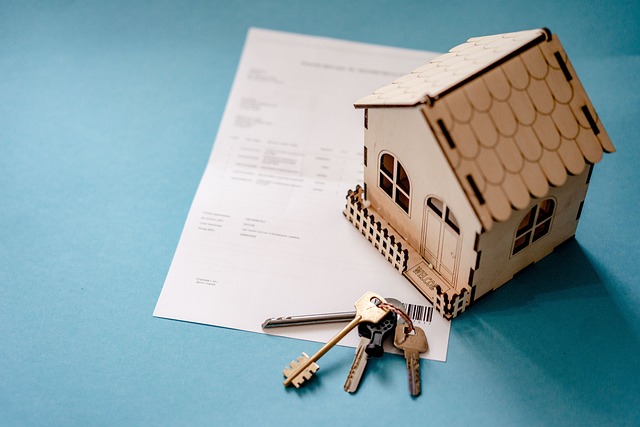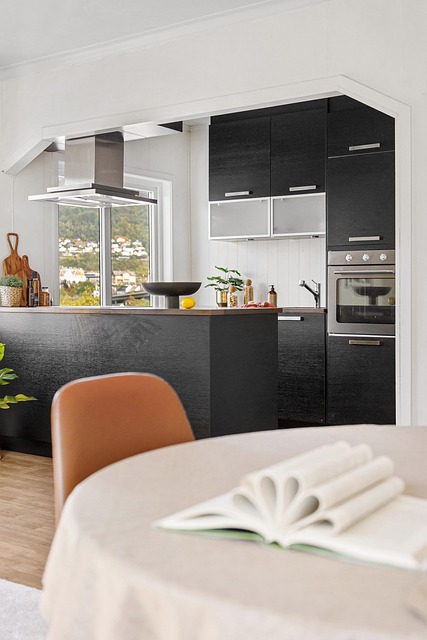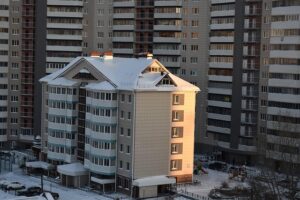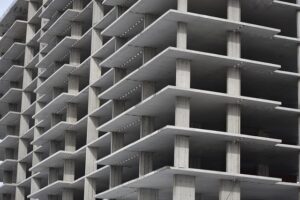Post-Launch EC Pricing Trends and Cost Analysis in Singapore’s Housing Market
The average price of Executive Condominiums (ECs) in Singapore post-launch is subject to a multitude of factors including location, development size, unit type, and estate maturity. These dwellings are often priced higher if situated in mature estates or near …….

The average price of Executive Condominiums (ECs) in Singapore post-launch is subject to a multitude of factors including location, development size, unit type, and estate maturity. These dwellings are often priced higher if situated in mature estates or near transport hubs due to their desirability and accessibility. Prices also fluctuate across different launch phases, with earlier phases typically demanding more. Prospective buyers must conduct thorough market research to understand the nuances of EC pricing and its long-term implications for informed decision-making. Keeping track of new launches and sales patterns is vital for discerning current trends and assessing potential investment returns in this housing segment, which serves as a midpoint between public and private housing. The demand for ECs is robust, driven by their appeal to middle-income families and investors. The average price of ECs in Singapore reflects broader market dynamics influenced by economic growth, demographic shifts, and government policies. Factors such as scarcity of supply, location, and the impact of new project launches can affect pricing. Investors should monitor these trends and policy adjustments to anticipate changes in availability and prices within Singapore's property market. Renovation costs for ECs vary widely, and buyers must consider various expenses including legal fees, stamp duties, maintenance fees, and renovation budgets. A comprehensive understanding of the full financial commitment is essential before making an investment decision. The introduction of new ECs influences the housing market, particularly for middle-income families, by providing more spacious and affordable options, potentially alleviating price pressures in the resale market, and impacting broader economic indicators such as property values and the construction sector's vitality in Singapore.
Explore the dynamic landscape of property investment in Singapore with our comprehensive analysis of the latest Executive Condominium (EC) launch. This article delves into the Average Price of ECs in Singapore post-launch, shedding light on market trends and the factors that influence their pricing. We dissect the cost breakdown for ECs, offering insightful data to inform your investment decisions. Join us as we assess the ripple effects of new EC launches on the broader housing market, ensuring you’re equipped with a nuanced understanding of this segment within Singapore’s real estate sector.
- Understanding the Average Price of ECs in Singapore Post-Launch
- Market Trends and Factors Influencing EC Prices in Singapore
- Analyzing the Cost Breakdown for Executive Condominiums in Singapore
- The Impact of New EC Launches on the Housing Market in Singapore
Understanding the Average Price of ECs in Singapore Post-Launch

The average price of Executive Condominiums (ECs) in Singapore post-launch has been a subject of keen interest among property seekers, particularly given the unique positioning of ECs as a hybrid between public and private housing. As of the latest data, the prices of these units have shown a trajectory that reflects both market demand and governmental supply strategies. Prospective buyers looking to understand the average price of ECs post-launch should consider the nuances of pricing which are influenced by factors such as location, development size, unit type, and the maturity of the estate. For instance, ECs situated in mature estates or those close to well-connected transport nodes tend to command higher prices due to their desirability and convenience. Additionally, the pricing can vary significantly between phases of the same development, with early phases often priced at a premium. It’s imperative for potential buyers to conduct thorough research and consider their long-term commitments when evaluating the average price of ECs in Singapore post-launch, as these properties offer a unique blend of affordability and the potential for capital appreciation. Keeping abreast of recent launches and tracking the sales patterns can provide valuable insights into the current market trends for ECs, which are increasingly sought after by both families and investors alike.
Market Trends and Factors Influencing EC Prices in Singapore

The real estate market in Singapore has seen a consistent demand for executive condominiums (ECs), reflecting broader market trends that influence their pricing. These trends include economic growth, population shifts, and government policies on housing. Notably, the Average Price Of Ec In Singapore has been on an upward trajectory, buoyed by a combination of factors such as limited supply and increasing popularity among middle-income families who are eligible to purchase these units. The balance between public and private housing makes ECs an attractive option for those seeking larger living spaces than what is typically available in condominiums or Housing & Development Board (HDB) flats. The pricing of ECs is also influenced by their location, with units near mature estates, good schools, and transportation hubs commanding higher prices. Additionally, the introduction of new EC projects can temporarily affect market prices, as anticipation and demand for these new developments often lead to a spike in the average price. Prospective buyers should consider these factors when evaluating the investment potential of ECs in Singapore’s dynamic property landscape. Keeping abreast of government initiatives and policy changes is equally crucial, as they can have immediate and significant impacts on the supply of ECs and, consequently, their pricing.
Analyzing the Cost Breakdown for Executive Condominiums in Singapore

Prospective homeowners in Singapore often find themselves drawn to Executive Condominiums (ECs) due to their affordability compared to private condos and the benefits they offer, such as eligibility for government housing grants. The average price of ECs has been on an upward trajectory, reflecting the growing demand and the limited supply of these hybrid public-private housing units. A detailed cost breakdown is crucial for buyers to make informed decisions. The cost encompasses not only the purchase price but also additional expenses such as legal fees, stamp duties, maintenance fees, and potential renovation costs. Legal fees for ECs are generally lower than those for private properties due to the subsidy involved. Stamp duties are calculated based on a sliding scale that varies with the value of the property; this is a significant financial consideration. Moreover, prospective buyers must consider ongoing expenses like monthly maintenance fees, which are necessary for the upkeep of common areas and facilities within the EC development. Renovation costs can vary widely depending on the extent of personalization desired, with budget-friendly options starting from a few thousand dollars for basic work to over a hundred thousand dollars for comprehensive transformations. Understanding these costs is essential for potential buyers to anticipate the total financial commitment involved in owning an EC. As such, it’s advisable to conduct thorough research and consult financial advisors or real estate professionals to navigate the cost landscape of ECs effectively. Keeping abreast of the average price of ECs in Singapore, as well as the fluctuating costs associated with them, will arm buyers with the knowledge they need to make a prudent investment decision.
The Impact of New EC Launches on the Housing Market in Singapore

The launch of new Executive Condominiums (ECs) in Singapore has a significant impact on the housing market, particularly for middle-income families seeking affordable and spacious living options. With the average price of ECs in Singapore having shown resilience and growth, these launches are pivotal in shaping the property landscape. The introduction of new ECs not only provides more housing units but also influences the pricing dynamics within the public and private housing market. Prospective buyers often view ECs as a stepping stone to a private property, given their affordability and the benefits they offer, such as eligibility for subsidies and grants from the government. The availability of these units can mitigate price pressures in the resale market, offering buyers more options without competing fiercely with those in the market for smaller resale flats. Additionally, developers often price new ECs competitively to attract first-time homeowners, which can lead to a ripple effect, influencing prices across different segments of the housing market. As a result, the impact of new EC launches is multifaceted, affecting not just the affordability and availability of homes but also the broader economic indicators, such as property values and the health of the construction sector in Singapore.
Singapore’s property market continues to evolve with the latest Executive Condominium (EC) launch, providing valuable insights into the average price of ECs in the post-launch period. This article has examined the various factors influencing EC prices, the cost breakdown of these properties, and their broader impact on the housing landscape in Singapore. It is evident that ECs play a crucial role in offering an affordable alternative for both singles and families looking to upgrade from HDB flats to private property. The data presented underscores the importance of staying informed about market trends, which can significantly affect investment decisions and personal financial planning. As the EC market adapts to these changes, potential buyers will benefit from a deeper understanding of the associated costs and price movements to make informed choices that align with their long-term housing goals.







